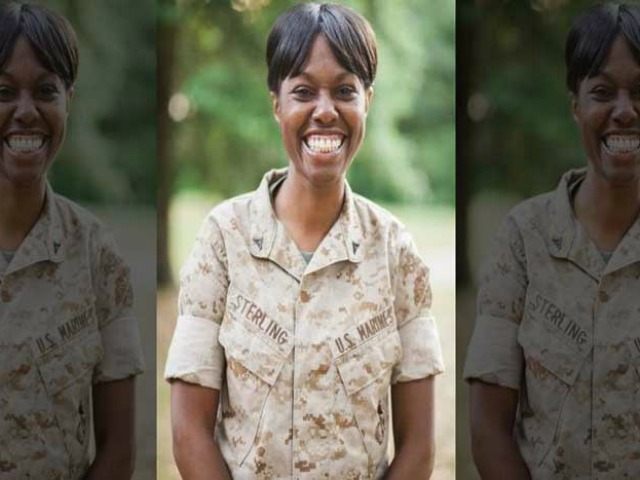WASHINGTON—Lawyers representing Lance Corporal Monifa Sterling— the U.S. Marine court-martialed for displaying Bible verses on her desk—petitioned the U.S. Supreme Court on the Friday before Christmas to take her appeal, one of the biggest military religious liberty cases in American history.
Sterling was a substandard Marine, but the straw that broke the camel’s back to get her court-martialed was posting, “No weapon formed against me shall prosper,” a paraphrase of Isaiah 54:17. Representing herself during the prosecution, she argued that she had a religious liberty right to post that verse. She was convicted and dishonorably discharged from the military.
Religious liberty lawyers at First Liberty Institute agreed that Sterling’s posting Bible verses is protected by law—specifically, the Religious Freedom Restoration Act (RFRA)—and took her case free of charge, recruiting one of the greatest Supreme Court litigators in recent decades, former Solicitor General Paul Clement, to lead their team.
Clement and First Liberty argued for her at the U.S. Court of Appeals for the Armed Forces. Judge Margaret Ryan wrote the 4-1 split opinion of the court ruling against her, holding that it is not a “substantial burden” on religious expression to criminally prosecute a person for posting Bible verses, and that RFRA does not stop the military from requiring service members to go through a lengthy administrative appeal process before they can continue to express their faith.
Judge Ryan’s Sterling opinion is panned by many conservatives as a terrible military religious liberty decision. Both of these parts of the ruling created a “circuit split” with most federal appeals courts to rule on the same issues, and became the basis for asking the nation’s highest court to take the case.
Two days before Christmas, Clement and First Liberty Institute filed Sterling’s request for review—called a petition for certiorari—at the U.S. Supreme Court.
“In this case, the Court of Appeals for the Armed Forces joined the minority side of the split, limiting the civil liberties of the nearly two million men and women who defend religious freedom in uniform,” the petition reads.
Other appeals courts “sensibly recognized that a complete prohibition on religious exercise is the most obvious form of substantial burden and also recognize that the religious practice burdened need not be religiously-compelled,” the petition continues.
By contrast, although this military court’s decision “recognized that … Sterling’s posting of the Biblical quotations constituted religious exercise under RFRA,” it nonetheless “held that a Marine’s exercise of religion was not substantially burdened when her superior ordered her to remove from her personal workspace three small slips of paper containing Biblical quotations,” even when disobeying that order resulted in a criminal conviction.
To the contrary, Clement and First Liberty insist, “A direct government prohibition on religious exercise is the quintessential substantial burden.” To rule otherwise “leaves the individuals most in need of protection—those, like service members, subject to direct government commands—with the least protection from government interference with religious exercise.”
The justices will vote in early 2017 whether to take the case, which would likely be scheduled for autumn of that year.
The case is Sterling v. United States.
Sterling Cert Petition by breitbartnews on Scribd

COMMENTS
Please let us know if you're having issues with commenting.